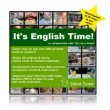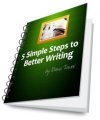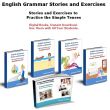About the tense after the word 'while'
by Lucas
(Jeju, Korea)
Hello!
There is a sentence in my textbook,
'Medical practice would be revolutionized by allowing doctors to buy patients time while they searched for new ways to treat disease or life-threatening injuries.'
The sentence seems to express things about future, but the word 'searched' is used after the word 'while'. It doesn't seem that doctors searched for new ways in the past, but since it is used in past tense, I'm confused whether it does mean something about past, or it is simply a way to express formality or politeness (I don't know if making the verb in its past form has the effect of expressing politeness or formality)?
Comments for About the tense after the word 'while'
|
||
|
||
|
||
|
||
Still looking? Search the site for exactly what you need using the site search box below.
Happy exploring!
Discover these Amazing ESL Materials!
 |
 |
 |
 |
 |
 |
 |
 |
 |
 |